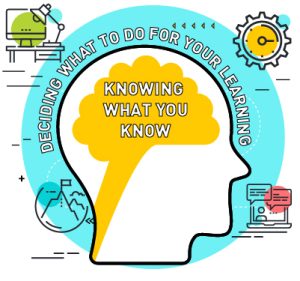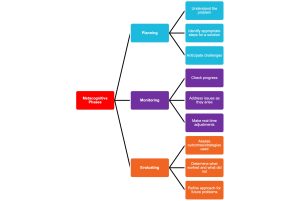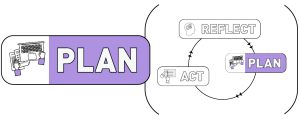Metacognition
Metacognition is thinking about your own thinking and it has two parts:
■ Knowing what you know
■ Deciding what to do for your learning
The next two activities will help you identify what you know and what to do about your learning and how to schedule your time.
At this early stage, you’ll use the next activity to identify how well you know the prerequisite knowledge and skills needed to complete/approach an assessment question or decision that you identified for yourself. It will also ask you about your learning strategies and to decide what you will do for your learning.
Using Metacognitive Skills in Problem-Solving and Decision-Making
When using metacognitive skills to approach problem-solving, there are three main phases to keep in mind: (1) Planning, (2) Monitoring, (3) Evaluating. With each phase these are different strategies to approach each effectively to ensure you’re employing all available metacognitive skills to a problem/decision. In the image below, it summarizes the key ideas associated with each phase. This helps to break down the phases into the types of tasks you should complete to approach a problem or decision!

Next, is a list of metacognitive problem-solving strategies that tackle each of these phases in order. Please watch the following video!
In the following activity, Shaina is completing an assignment she finds particularly challenging. She is currently approaching a problem unlike those she has seen before.
Help Shaina determine which strategies she should use to plan her approach to the problem, to monitor her progress, and evaluate her response.
Identify resources needed to achieve your goals

In this activity, you’ll identify resources that can help you achieve your goals. The most successful individuals will seek help to achieve their goals.
Metacognition requires you to think about your own thinking and is separated into two parts - knowing what you know and deciding what to do for your learning. This skill is essential for identifying how well you know the prerequisite knowledge, developing study strategies, and learning how to schedule your time.

